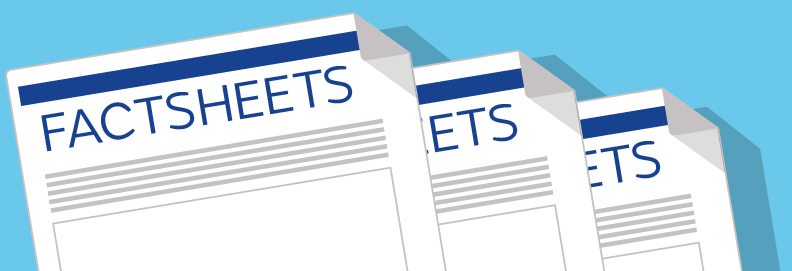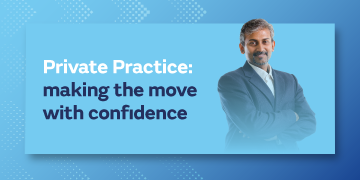The Tax System Explained
Post date: 21/06/2022 | Time to read article: 5 minsThe information within this article was correct at the time of publishing. Last updated 28/06/2022
Author: Ian Tongue, Sandison Easson
If you’re just starting out in private medicine, you may only have come across the Pay As You Earn (PAYE) system, which tends to look after itself. When you’re running a business, you will have additional requirements to register with HM Revenue and Customs (HMRC), earnings to declare under Self Assessment, and taxes to pay directly to HMRC.
The basics
The PAYE system is in place for employees. It is the employer’s responsibility to pay the tax and National Insurance due to HMRC.
HMRC issue a tax code to all taxpayers and this determines how much of your pay is not subject to income tax. This varies depending on your earnings and circumstances. For most people, the tax code collects the right amount of taxes, but moving jobs or having multiple employments can often result in an underpayment of tax, and therefore it is always a good idea to have your tax code reviewed by an accountant.
When you start earning money outside of the PAYE system you are receiving payment ‘gross’ and are required by law to declare these earnings to HMRC. The type of tax payable depends on your trading structure, with individuals paying income tax and national insurance, and companies paying corporation tax.
Irrespective of the type of tax payable, you are required to register with HMRC that you are running a business, and it is usually your accountant that assists you with this process. HMRC can levy fines and penalties for not dealing with this on time.
The tax system
Both individuals and companies declare their earnings on a self assessment basis. As the name suggests, you are self-disclosing to HMRC your earnings for the year or period in question and the tax due is calculated accordingly.
The tax system has various rules and tax legislation provides the framework for how your profits will be calculated and what is a reasonable way to set up your business. HMRC have various powers and guidance to fall back on in relation to tax avoidance if they do not believe the legislation has been adhered to.
No accounting paperwork is submitted to HMRC when a tax return is prepared. HMRC police this with the enquiry system. An enquiry can look at a specific aspect of your tax return or may look at all of your tax affairs and can be an unpleasant experience. They are usually only opened where HMRC believe there is an issue. Therefore, obtaining sound accounting and tax advice is the best way of avoiding the long arm of HMRC. Ignorance of the rules and regulations is never a defence, so appointing a medical specialist accountant is the best way of setting up efficiently for tax, which should help you avoid any nasty surprises.
Income tax
Income tax is generally paid by individuals on their earnings, but special rates apply to savings and investment income. When you trade as a sole trader, or perhaps as a partnership, your profits will be subject to income tax and you will also pay national insurance. Both are disclosed on your tax return, and a separate tax calculation is prepared showing the combined tax and National Insurance due.
If you are resident in England or Wales, the same tax and National Insurance rates apply, but the rates are different if you live in Scotland. Anyone moving to, or leaving Scotland but remaining in the UK, will pay the rates of tax based on where you have spent the most time over the calendar year.
The deadline to submit your self assessment personal income tax return is 31 January annually, and the payment dates for individuals paying tax are 31 January and possibly 31 July, depending on the amount of tax due.
There can be a significant delay from earning money to paying your first tax liabilities, therefore it is very important that you save for tax from when you start private practice.
For example, if you commenced your private practice on 1 July 2022, your first period for tax would run from that date to 5 April 2023, and the tax would be due by 31 January 2024.
Due to this long time difference, HMRC ask you to pay on account, rather than in arrears. If the tax due in the above example was £10,000 in January 2024, HMRC would ask for a further payment on account of £5000, making the total payment £15,000. This payment on account is for the next tax year and is 50% of the previous year liability. To complete the example, a further £5,000 would be payable on 31 July 2024, and once paid you would have made payments amounting to £10,000 for the tax year 2023-2024.
With rising profits, the payments on account do not keep pace with the increasing tax liability, resulting in the following January being a catch-up payment, and the payment account increasing to reflect the new higher level of tax. This multiplier effect can catch people out, but if you save from the outset of your private practice, you should easily be able to meet your tax liabilities as and when they fall due. The timing of these payments is an important part of understanding the tax system and your accountant should explain this to you.
Corporation tax
Companies pay a different type of tax, called corporation tax and, as with individuals, the tax return is on a self assessment basis.
The submission of a tax return and payment of corporation tax is by the company’s financial year end, rather than being a universal date to report earnings and pay taxes (as with individuals). A company needs to pay its tax within nine months of the financial year end and its accounts are usually due by the same date. The tax return is due 12 months after the year end, but in practice it is usually prepared and submitted when the accounts are.
For example, if a company prepares its financial statements to 30 June 2022, the tax on those profits is due by 31 March 2023 along with the accounts, but the corporation tax return is due by 30 June 2023. Recently, the deadline to submit accounts has been extended by three months due to COVID-19, but HMRC still expect payment within nine months of the financial year end.
VAT
VAT is a tax we are all used to paying on our day-to-day expenditure. For most businesses, VAT needs to be collected and paid over to HMRC, but for most doctors, VAT is not a concern, as their services are medical and therefore exempt.
There are exceptions though. The most common type of work not exempt from VAT that a doctor may carry out is medicolegal. This is because the principal purpose of carrying out this type of work is to help a third party make a decision, rather than the treatment of a patient.
Work of a purely cosmetic nature is also potentially subject to VAT, but this is a grey area as many perceived cosmetic treatments are undertaken for medical reasons, whether physical or mental.
If you are carrying out more than £85,000 per year of work that could be regarded as non- medical, it is important to speak to your accountant about compulsory VAT registration as significant penalties and financial loss can arise for non-registration. An important part of considering your VAT position and whether you have exceeded the £85,000 threshold is to look at the figures on a 12-month rolling basis, that is every month, rather than expecting this to be picked up when the year-end figures are prepared.
VAT is a complex area, and it is important that you choose an accountant that understands the medical profession and who can advise you on your specific circumstances.
The self assessment system can be daunting when you have historically paid your taxes at source through your salary. It is inevitable that any private work undertaken will result in you having to declare income to HMRC and it is extremely important that you obtain professional advice to ensure that all compliance matters are met and your business is set up efficiently for tax.
Any questions?
We hope you found the content of these articles useful. If you have financial questions or would like more advice on this topic, please contact Sandison Easson on 01625 527351.
Stay protected throughout your career
Our relationship management team are here to talk to you whenever you’re ready to add private practice protection to your membership. Find out more.
Not a member yet?
Click here to get a quote



